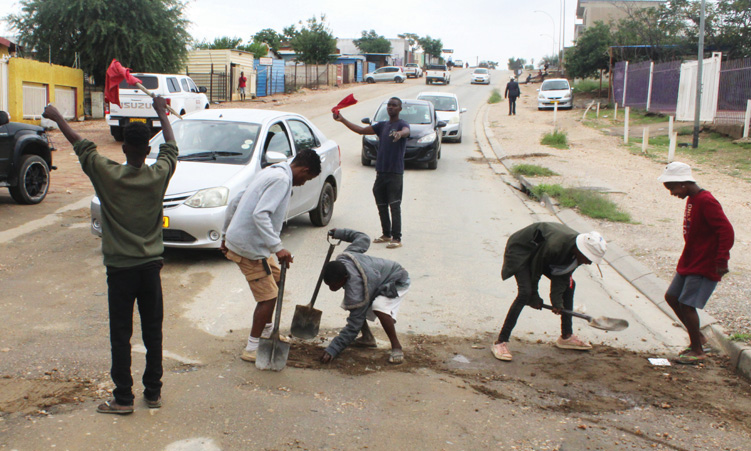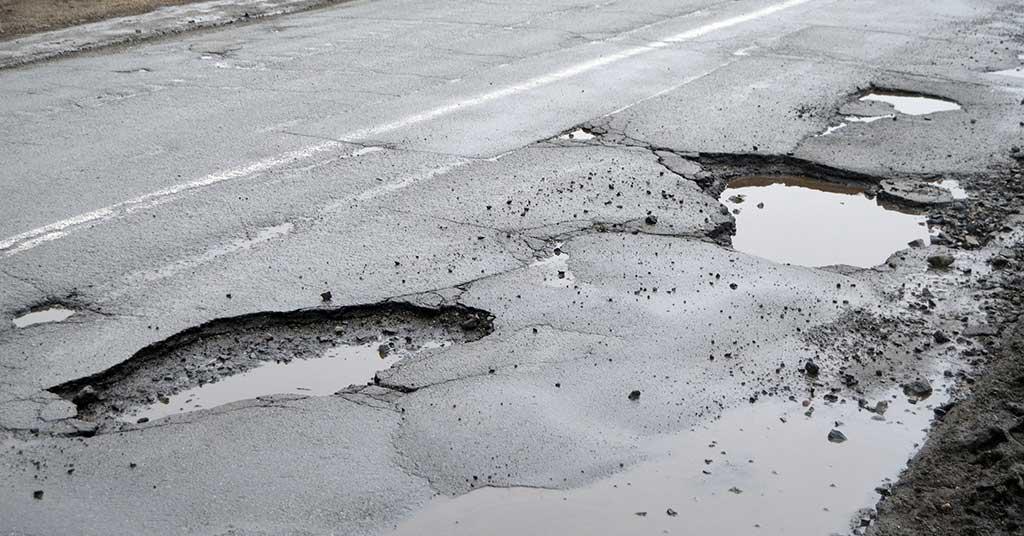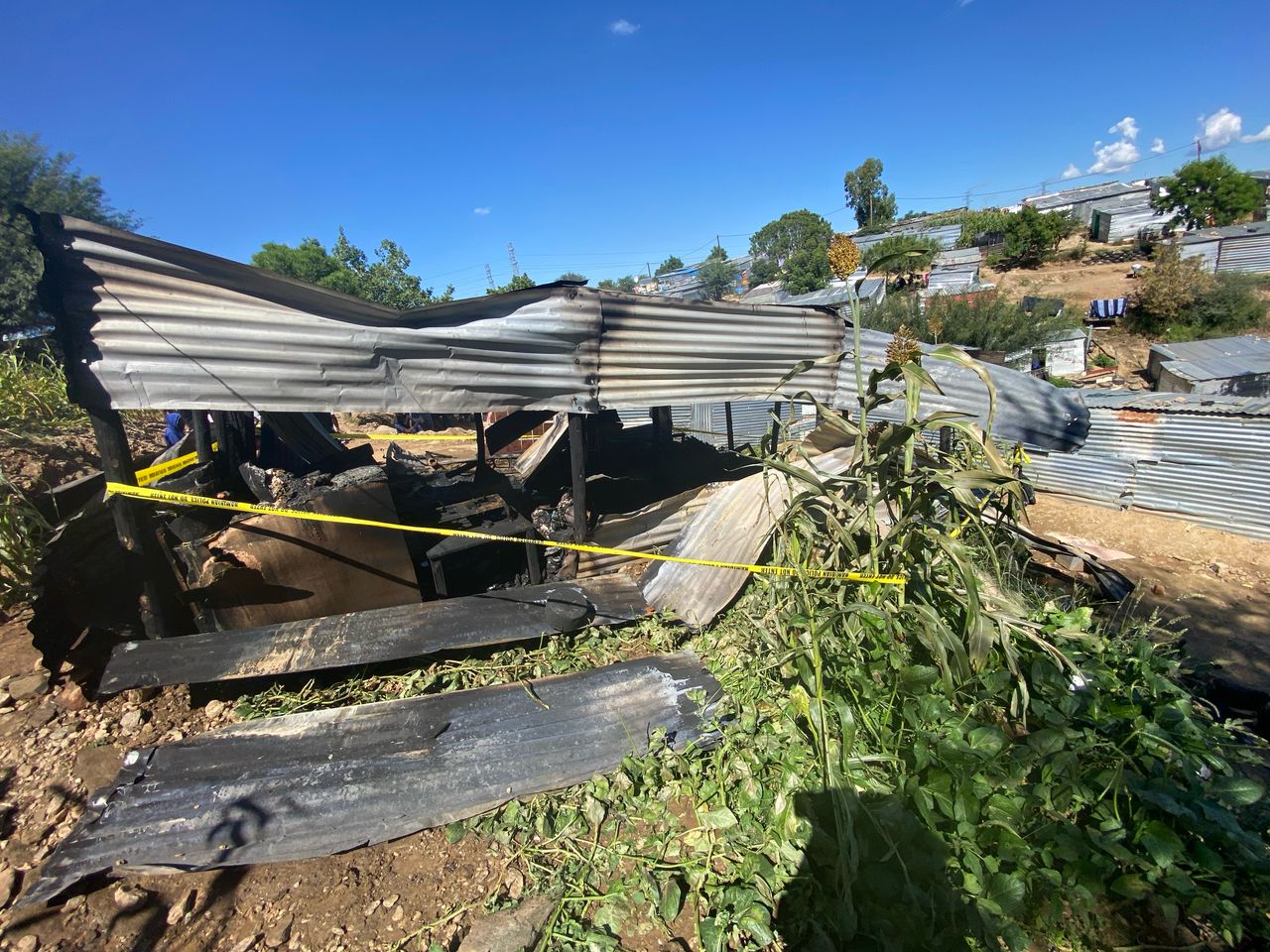The old adage says every situation is an opportunity.
While many are complaining about the potholes mushrooming across Windhoek, Ines van Wyk (16) from Havana says he is now earning N$20 a day filling the same potholes.
This has become his source of income.
Van Vyk and his friends use whatever they can – buckets and damaged green municipal bins – to carry gravel from the side of the road.
The scrape of gravel against metal can be heard down the street as the group hurries to fill a pothole and move on to the next one.
Van Wyk says they earn tips from drivers, who thank them with as little as N$1.
Since they began filling potholes last week, Van Wyk and his team say they have made N$500.
“It’s not much, but whatever we get, we split among each other. It helps us buy bread or something to take home,” he says.
Van Wyk says he has been filling potholes since dropping out of school after his mother could not support him.
“My mother does not give me money for school. I’m not even staying with my mother; I’m staying with my grandmother,” he says.
Rowan Tjihunga (22) says on Tuesday the group made N$200.
“This is the most we have made since we started on Friday. We split it and we all took N$20 each,” he says.
MUNICIPALITY CONCERNED
City of Windhoek spokesperson Lydia Amutenya tells The Namibian the municipality is concerned about children engaging in road repairs for survival.
Amutenya says the municipality’s social welfare division collaborates with relevant stakeholders to provide support for vulnerable children in the form of shelter, psychosocial support and reintegration programmes.
She urges the public to refer such cases to the municipality’s social services teams and relevant child welfare organisations for appropriate intervention.
REPAIR PLANS
Amutenya acknowledges the challenges posed by the deteriorating road conditions due to recent heavy rains, but says the municipality can only start repairs after the rains end.
“We understand the frustration as we experience the same road conditions when using our roads.
“Unfortunately, while we appreciate the community’s proactive efforts – including those of street children attempting to fill potholes – road maintenance requires technical expertise and adherence to safety standards to ensure long-term solutions,” she says.
The spokesperson says there is a plan to repair and upgrade roads throughout Windhoek, particularly in high-traffic areas and near critical infrastructure, and seek more permanent solutions to road quality.
“We recently announced to the public a schedule for roadworks for street milling, asphalt inlay and preparatory work. These construction activities will continue until the end of August and will require partial and phased closures of various streets and intersections,” says the spokesperson.
Until then, temporary pothole repairs will continue.
DANGER TO THE PUBLIC
Havana resident Jeffrey Aribeb says he gave street children in the area supplies, as drivers would often steer vehicles onto the sidewalk in front of his home to avoid numerous potholes around a speed bump, endangering nearby children.
“We started this for the community, we started it for our children,” he says.
While community members initially placed tyres on sidewalks to discourage drivers, Aribeb says the intervention didn’t work and they decided to give the street children assistance.
He claims a growing number of children, some as young as 10 years old, have left school to fill potholes and earn money.
Landless People’s Movement leader Bernadus Swartbooi voiced his disappointment in parliament last month, saying potholes endanger both motorists and pedestrians.
He said the dust from filling the potholes with sand blocks motorists’ visibility, further contributing to safety concerns.
Swartbooi has since called for urgent alternative interventions, claiming that by the time the rainfall ends and potholes are fixed, no roadworthy vehicles would remain.
The heavy rains have damaged roads and bridges, and are predicted to continue.
BACKGROUND
Road users have been urged to be patient until the rainy season ends as the municipality is limited to temporary repairs at present.
During an ordinary council meeting in Windhoek last week, mayor Ndeshihafela Larandja said a team has been dispatched to conduct temporary pothole maintenance and will continue monitoring affected roads.
She urged motorists to drive cautiously and adhere to the road rules during the rainy season by reducing their speed and remaining vigilant.
The mayor said she will ensure service delivery is not delayed during her tenure, and called on Windhoek residents to collaborate with the municipality and report issues affecting them.
Amutenya encouraged residents to report details of affected roads through municipal communication channels: 061 290 3777 (telephone), 269 600 (SMS) or enquiry@windhoekcc.org.na (email).
“We appreciate the public’s patience and request that you extend us your cooperation while we improve mobility and drivability,” she said.
Meanwhile, Tjihunga and the other street children say they cherish the never-ending business: “Tomorrow the rain will come again and wash away the dirt and the roads we have just filled.”
Stay informed with The Namibian – your source for credible journalism. Get in-depth reporting and opinions for
only N$85 a month. Invest in journalism, invest in democracy –
Subscribe Now!










